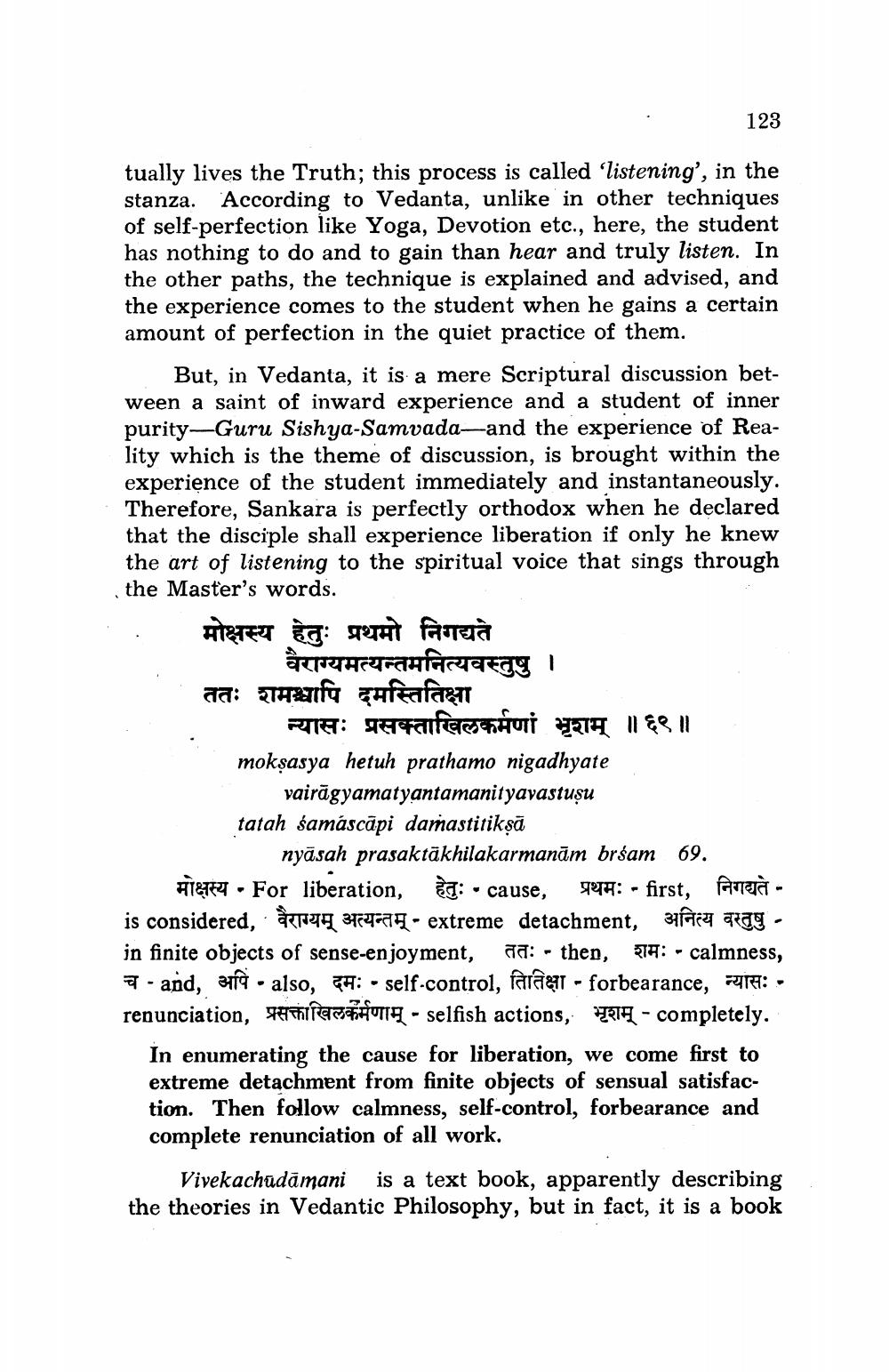________________
123
tually lives the Truth; this process is called 'listening', in the stanza. According to Vedanta, unlike in other techniques of self-perfection like Yoga, Devotion etc., here, the student has nothing to do and to gain than hear and truly listen. In the other paths, the technique is explained and advised, and the experience comes to the student when he gains a certain amount of perfection in the quiet practice of them.
But, in Vedanta, it is a mere Scriptural discussion between a saint of inward experience and a student of inner purity-Guru Sishya-Samvada—and the experience of Reality which is the theme of discussion, is brought within the experience of the student immediately and instantaneously. Therefore, Sankara is perfectly orthodox when he declared that the disciple shall experience liberation if only he knew the art of listening to the spiritual voice that sings through the Master's words. मोक्षस्य हेतुः प्रथमो निगद्यते
वैराग्यमत्यन्तमनित्यवस्तुषु । ततः शमश्चापि दमस्तितिक्षा
न्यासः प्रसक्ताखिलकर्मणां भृशम् ॥६९॥ mokşasya hetuh prathamo nigadhyate
vairāgyamatyantamanityavastuşu tatah samáscāpi damastitikşā
nyāsah prasaktākhilakarmanām brsam 69. मोक्षस्य • For liberation, हेतुः • cause, प्रथमः - first, निगद्यते - is considered, · वैराग्यम् अत्यन्तम् - extreme detachment, अनित्य वस्तुषु । in finite objects of sense-enjoyment, a: - then, TA: - calmness, च - and, अपि • also, दमः • self-control, तितिक्षा - forbearance, न्यासः - renunciation, AITES 019 - selfish actions, 274 - completely.
In enumerating the cause for liberation, we come first to extreme detachment from finite objects of sensual satisfaction. Then follow calmness, self-control, forbearance and complete renunciation of all work.
Vivekachūdāmani is a text book, apparently describing the theories in Vedantic Philosophy, but in fact, it is a book




